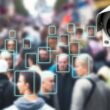Government, Industry Leaders Favor Partnering
Speakers at a three-day conference in Reston, Va., were almost unanimous in urging sharing of information about security technologies, either through public-private partnerships or industry organizations.
At the 2002 Networked Economy Summit: “Meeting Security Challenges with Technology,” top federal and industry officials had plenty of ideas about how to spend billions of dollars in Homeland security funds.
For private industry, Homeland security will bring an era of both “unprecedented opportunities and unprecedented dangers,” predicted Jack London, chairman and CEO of CACI Intl, Arlington, Va., a network solutions provider.
“Protecting our information system will require business and government to act together. Depending on government to be prescient is not going to work,” said Richard Clarke, special adviser to the President on cyberspace security, at the June 9-11 event.
“The answers will only come from a new type of public/private collaboration,” Virginia Governor Mike Warner agreed.
“If we want to solve the problem, we need to turn to you, because you guys have the expertise,” said Phil Bond, undersecretary for technology administration in the U.S. Commerce Department, to suppliers at the conference.
The U.S. House and Senate are both expected to pass President Bush’s Homeland Security bill, now under consideration in Congress, but they may not iron out their differences until the end of the summer.
With details of the proposed government reorgnization still pending, speakers at the security conference focused mainly on federal initiatives already proposed, and in some cases, those already operating.
Several speakers talked about the Driver’s License Modernization Act of 2002, a bill currently under consideration that would require state licenses to adhere to national standards, including biometric identifiers on cards, as well as electronic linkages between state Departments of Motor Vehicle.
Clarke described the Information Technology (IT) Information Sharing and Analysis Center (ISAC), opened last year in response to federal recommendations for the creation of a set of non-government organizations able to share information about common security problems “outside the burden of open-record laws.”
Clarke also called upon various groups within the IT sector, such as finance and insurance, to share more security information among themselves.
U.S. Representative Jim Moran (D-VA) discussed legislation proposed to exempt information shared about “cyber vulnerabilities and attacks” from both anti-trust laws and the Freedom of Information Act.
Moran also mentioned upcoming federal security needs in areas including facial recognition technology, scanners, software systems and “biological, chemical, and cyber threats.”
In addition, London suggested positive ID systems, information collection systems and cellular networks that give priority to federal agents.




















